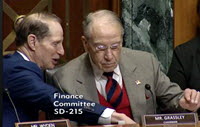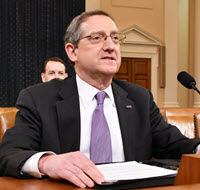Despite Positive Sentiment About Q3 and Future Market Conditions, Industry Remains Cautious
(WASHINGTON, D.C.) — Commercial real estate industry leaders continue to see balanced and stable economic market conditions, according to The Real Estate Roundtable’s 2019 Q3 Sentiment Index released today.
“As our Q3 Index shows, industry executives are entering the second half of the year with confidence in stable market fundamentals, supported by a solid economy with low employment,” said Real Estate Roundtable President and CEO Jeffrey DeBoer. “Although there is political uncertainty and the economic recovery is historical in length, commercial real estate market dynamics remain sound, with balanced supply and demand in most markets, and debt and equity readily available, particularly for high grade investments,” DeBoer added.
The Roundtable’s Q3 2019 Sentiment Index’s registered a score of 50 — a one point decrease from the previous quarter. [The Overall Index is scored on a scale of 1 to 100 by averaging Current and Future Indices; any score over 50 is viewed as positive.] Both the Current-Conditions Index of 53 and Future-Conditions Index of 48 for this quarter remained the same from the previous quarter, reflecting the stabilized real estate market conditions and the overall economy.
The report’s Topline Findings include:
While 50% of survey participants reported Q3 asset values today are “about the same” compared to this time last year, 60% of respondents believe that one year from now, values will be “about the same” suggesting real estate asset pricing will remain steady through the remainder of the year. Some respondents believe there is still opportunity for growth for high quality assets in certain markets.
Data for the Q3 survey was gathered in July by Chicago-based FPL Associates on The Roundtable’s behalf.
# # #
A bipartisan group of Senate Finance Committee policymakers this week recommended the tax deduction for energy efficient commercial buildings (section 179D) should become a permanent provision in the federal tax code. Section 179D expired at the end of 2017. ( BloombergTax , Aug. 13)
 |
Senate Finance Chairman Chuck Grassley (R-IA), right, and Ranking Member Ron Wyden (D-OR), left, set up five bipartisan task forces in May to consider long-term solutions for more than 40 temporary provisions in the federal tax code that repeatedly expire and come up for renewal. |
• Credit for construction of new energy efficient homes (sec. 45L)
• Credit for energy efficient improvements to existing homes (sec. 25C)
• Exclusion of mortgage debt forgiveness (sec. 108(a)(1)(E))
• Deductibility of mortgage insurance premiums (sec. 163(h)(3)(E))
• New markets tax credit (sec. 45D)
• Empowerment zone tax incentives (sec. 1391-97)
 |
Building Owners and Managers Association (BOMA) International President and Chief Operating Officer, Henry Chamberlain, testified before Ways and Means last year to support Section 179D's permanence. ( BOMA testimony -March 14, 2018) |
When Congress returns on September 9 from summer recess, additional changes to the Ways and Means extenders bill may be made as it moves to the House floor, and then to the Senate. However, passage of spending bills to fund the government beyond September 30 are considered must-pass legislation. Whether an extenders bill can be attached to an FY'20 appropriations bill is uncertain at this time.
# # #